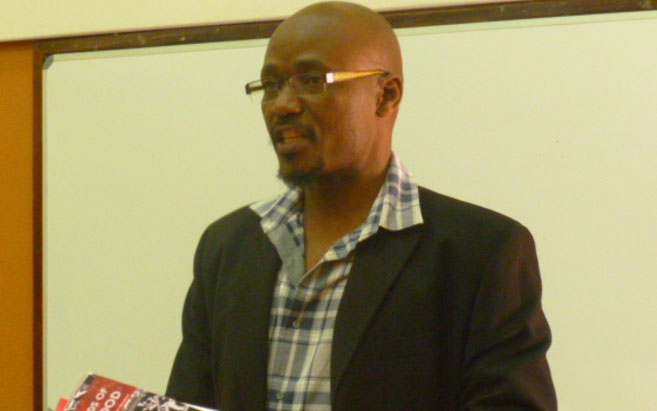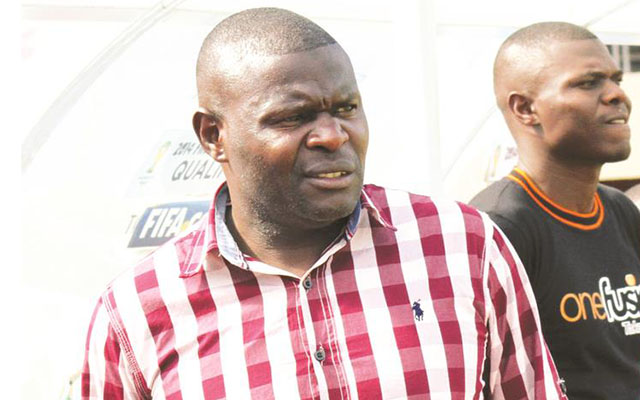Wading into the storms of Muponde’s world

Elliot Ziwira @ The Book Store
“So many things have happened; I am not responsible for their happening much as I am not responsible for the darkness of any night. Why does darkness fall on me? Cried night one night,” so laments the narrator in Robert Muponde’s short story “The Storm” in the anthology “No More Plastic Balls and Other Stories” (2000).
Suffering is a condition that is brought on humanity by Man himself, not so much because he is owed anything by the world he feels should be reduced to squalor at his hand, but it is his sadistic nature that drives him to such egregious folly.
Man is inherently virtuous and vicious, thus inasmuch as he is capable of causing the suffering of others, he is also not immune to the same. The storms which he brings in torrents on others also find a way back to haunt him. Yes, he may weather them awhile, keep them at bay for some time even, but he will really never really get over them, because he remains the source of the storms.
Yes, the night may cry that darkness always befalls it, and day will argue that it is not responsible for “the darkness of any night” yet there will be darkness day in day out, because darkness is a condition that separates the two. Without darkness there is no day or night; it is indeed a state of being, our being. It is through the mitigation or aggravation of the darkness within us that we are able to cause days or nights to befall on others.
When darkness engulfs us, we do not despair because we are aware of the existence of the other side, light; which we are certain exists at the end of the tunnel. We look forward to the dawns of the morrow, which we believe will change our condition, albeit temporarily. What happens then gentle reader if sunshine appears to be partisan, and darkness stalks others time and time again?
What becomes of the man to whom suffering is a way out of suffering or the gateway to dire straits, for to him it always “dawns pain”, as is the case with the narrator in “The Storm”?
The dearth of hope is the beginning of the disintegration of those to whom the mundane and sordid are the only common denominators in a world where materialism, avarice, brutality, chicanery and deceit are in vogue.
It is such a state of being that Muponde explores in his short stories in “No More Plastic Balls and Other Stories” (2000), which he co-edited with Clement Chihota, using powerful symbols and metaphors drawn not only from nature but from the different settings that shape his own experiences. Through characterisation, metaphor and realism, the writer purveys the nature of man as both predator and quarry.
The metaphors of the storm, darkness, madness, barrenness and death purvey a sense of hopelessness which leaves the reader crestfallen, as the fictional experience poignantly interact with the reality of lack and emasculation of expectancy. The narrative point of view used in Muponde’s stories; the first person singular voice, authenticates the struggles that the individual endures in an attempt to disentangle himself or herself from the labyrinthine web of his or her existence.
In “The Storm”, the narrator, Gomango, feels hard done by the storms that stalk him as a university student of the 1990s when demonstrations were the order of the day, and “tomorrow was waking up in the morning, clenching Dream’s fortune in gnarled hand”. Through the dream motif Muponde explores the barrenness of hope to a man who seeks hope in the benevolence of others, yet his own inward storms remain raging against himself and others.
The hopelessness that pervades the story starts and ends with the narrator himself whose first line is, “It was dark in my mind”, and likens “dawn” to “pain” and “difficult questions”. As his university life hangs in limbo, Gomango is evicted from his rented room, for failure to pay rentals and his rather violent inclinations, especially towards Hilda.
Though he may not be physically violent to her, the narrator’s storms within meet their match in Hilda’s who feels that she cannot be used for sex and discarded. The torrent of tirades that they exchange exposes a far-reaching problem which is even beyond them. The barrenness of their relationship is juxtaposed with the barrenness of their expectations, as they see their dreams erupting in flames.
Like Ronald in “Broken Strings” and “Touched”, Gomango finds himself questioning the essence of love in the absence of sustainability. It is tragic that love is sacrificed for the stomach, and other material gains which are hoped to be in existence somewhere else. The barrenness of all the relationships in Muponde’s stories is as worrisome as it is realistic in that prospects of regeneration are doomed, as the youths are mainly affected because of lack of an ideological vision to give them direction.
The storms that the characters go through, or unleash on others consciously or unconsciously, are juxtaposed with the rain which somehow points to hope, however, because of lack of an informed identity and ideological vision, the life-giving rains become other storms threatening to shred the fabric that should keep society intact.
Gomango, Ronald, Elijah, Maurice and the narrator in “The Storm”, “Touched”, “Broken Strings” and “At the Window” respectively, may be read as the same young man as in James Joyce’s “A Portrait of the Artist as a Young Man”. Their tragedy is not that they are oppressed, either physically, emotionally, psychologically or otherwise, but they do not know how to respond to their condition. They try to seek an elixir out of the storms which they are also responsible for, through sex, protests, violence and alcohol, without looking closely at their own foibles before looking through the window for solutions from their own apparitions.
Ronald’s strings in “Broken Strings” are severed, not because he is unlucky in love, no! That he decides to live beyond his means cannot be blamed on his girlfriend Linda, who is under pressure to extricate him from debt through promiscuity, which in the end sutures the bubble in their love.
He fails to proffer any good reason why he has to keep two rented rooms in Harare yet as a teacher he has free accommodation at his workstation in Sanyati. The storms that he wades into are predominantly of his own making.
Elijah in “Touched” leaves the reader wondering whether the oppressed should suffer in silence or take up arms and how. It is the adept skill that Muponde uses in the opening lines of the story that draws the reader in: “He died with his mouth open. Maybe trying to shout, to warn, or to give a clue to the source of things. It began when he said he was tired of silence.”
It may suggest that his death is linked to his open mouth, because he dared the authorities which may aggravate suffering as the oppressed feel that speaking out is detrimental in one way or the other. However, a close analysis reveals otherwise. Elijah betrays the suffering masses which he purports to be fighting for because of lack of self introspection.
That he understands the concept of suffering is beyond question, his conviction that suffering in silence is even more painful than the whipping storms is also not in disarray, but it is his lack of an ideological vision in the fight against the oppressive machinations that he feels burden him and his generation which is worrisome.
His struggle to locate himself in the different sites of the familial, communal and national platforms alienates him from high school, through college to Sanyati where finally finds himself as an insecure teacher after his expulsion from university. Living his life like a moving encyclopedia of quotes depicting oppression and suffering though inspiring, clouds his vision, so much that in the end he is no longer sure who his enemies are. He fights everything and “everybody”.
His protests at university yield nothing, his brutal killing of Katsanga, a policeman, over, Viola -a woman of questionable morals – exposes the violent storms which have always been raging within him, and his striping to show those around that he is indeed a man, is an adventure out of context. Such heroic antics are no longer in vogue to a society that has known too much suffering to pay attention to yet another visionless lunatic purporting to take them to Utopia, yet exposing them to even more turbulent storms.
Sadly, Elijah dies mysteriously; maybe at his own hand, just maybe; but what is clear is that death becomes the ultimate winner. As is the case with Maurice in “At the Window”, Elijah’s death becomes a window through which other characters view their own storms.










Comments